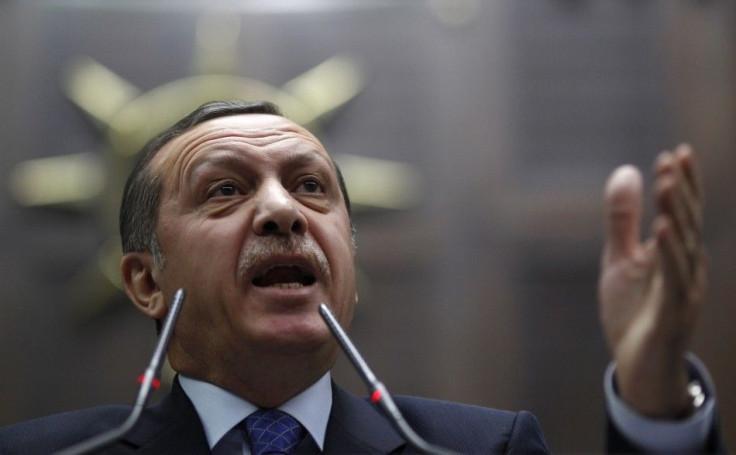Turkey's Erdogan Announces Landmark Pro-Kurdish Reforms; Lifts Ban On Headscarf Or Hijab In Public Institutions

Turkish Prime Minister Recep Tayyip Erdogan unveiled on Monday landmark reforms aimed at benefiting the country's Kurds, including a proposal to lower the percentage of votes required for a political party to enter parliament, which could brighten the parliamentary prospects of pro-Kurdish political parties.
The long-delayed measures also include lifting most of the restrictions on the use of Kurdish language in private schools, and an end to a ban on Muslim women wearing headscarves in state institutions, except in the case of judges, prosecutors, law enforcement officials and army members, Turkish newspaper Hurriyet Daily News reported.
“The 10 percent threshold in the current election system is not a system that [the ruling Justice and Development Party] AKP introduced. This threshold was present when we entered the elections for the first time,” Erdogan was quoted as saying by Hurriyet Daily News. “We are opening the floor to discussion on three alternatives to the threshold [which is currently 10 percent].”
Pro-Kurdish parties, which usually win votes by a wide margin in Kurdish strongholds, often struggle to gain nationwide support, curtailing their entry to parliament.
“First option is we can continue with the current system of 10 percent,” or lower the threshold to 5 percent or remove the threshold altogether, Erdogan said. The minimum percentage of national votes required to receive treasury aid to political parties will be reduced to 3 percent, from the current threshold of 7 percent, Erdogan said.
Erdogan's reforms also include a ban on the mandatory student oath, which starts with the words “I’m Turkish, right, and hardworking,” in primary schools. And, the government will return religious property belonging to Syriac Christianity -- Christians speaking the Syriac language -- that was confiscated by the state, he said.
The prime minister’s initiative is expected to give a boost to the Kurdish resolution process, which was launched in 2012, and is aimed at ending the three-decade-long clash with Kurdish rebels who seek autonomy in the largely Kurdish southeast.
“It is not a rational to expect this package to meet all the problems of the country, although we wish we could do this,” Erdogan said, adding: “This package is not a result of a negotiation. It is a result of the people’s demands.”
© Copyright IBTimes 2024. All rights reserved.






















